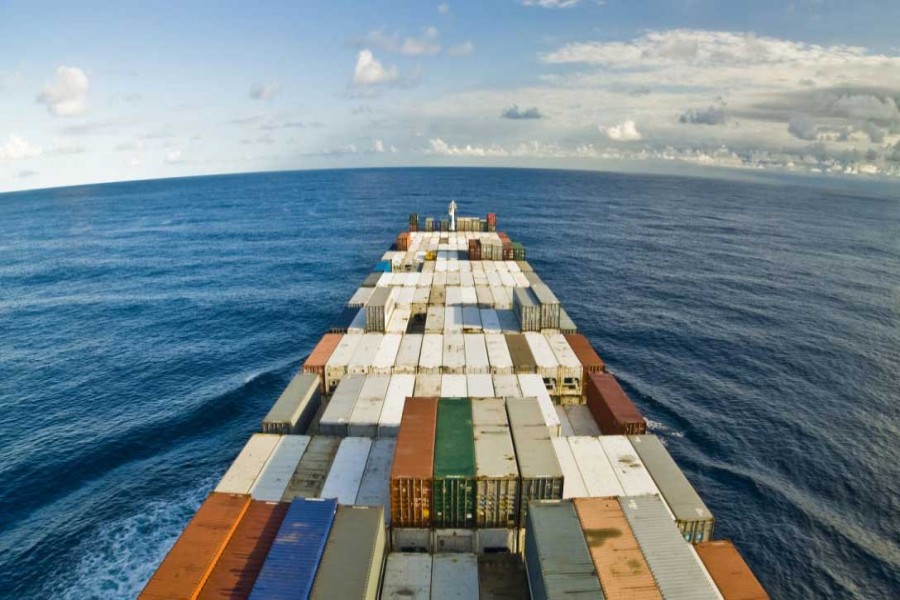The government, in all sincerity had kept the provision of giving exporters a 4 per cent cash incentive for exploring new markets as a means to diversify the export basket. Unfortunately, what has emerged from an order issued by the Monitoring Cell of the Ministry of Finance, the United Kingdom has been deemed a 'new market' as it is no longer part of the European Union. This happened sometime in February 2020.
The incident probably would not have come to light had an audit team from CAG (Office of Comptroller and Auditor General) not detected the anomaly. At a time when the government has been facing fiscal difficulties with the onset of Covid-19 and a general global economic downturn during the pandemic, we understand from the lead news printed in this paper on October 5 that, "The bounty period is of 29 months beginning February 2020-the time when trade promotion was a high priority for the event of a global pandemic beginning to upend normal course of things. Meanwhile, the UK had quit the EU in January 2020 under the Brexit formula. But the UK is not a new market for Bangladesh. The government did define the provision in September last or after 32 months of Brexit execution."
It leaves little to the imagination that most exporters have been treating this loophole, intentional or otherwise, as a windfall opportunity to reap the benefit of getting extra benefit of cash incentive. The UK has been a major market for RMG exports for decades and can in no way be termed a new market simply because it exited from the EU through Brexit. Then how is it that the exporters are being allowed take advantage by issuing an ambiguous order? We understand that through this provision of terming an 'old' market 'new, the government has dished out Tk15.17 billion in FY2020-21 to meet cash incentives for shipments (primarily apparels export, as RMG constitutes 80 per cent of the export basket) to the UK. Indeed, we understand that this amount is set to nearly double to over Tk27 billion if one calculates cash incentives that will be met from the national exchequer for the 29 month period in question.
According to official data, "the country's monthly merchandise-export earnings slipped into the negative territory in September is an upset to 13 months of robust growth, principally amid sluggish apparel sales abroad." Again Export Promotion Bureau data tell us that export earnings in the last month stood at US$3.9 billion, recording a 6.25 per cent negative growth year-on-year. One must wonder who benefits from this, apart from exporters. The government is facing difficulties trying to budget its books of accounts. We see various austerity measures being put in place to curtail expenditure. For instance, the reconditioned automobile importers now must put up 100 per cent cash margin to import vehicles. Hence, it begs the question as to the logic of such an order that is giving undue advantage to one sector. The government is in dire need to increase its revenue and here we have a situation where billions of Taka is being literally distributed to a section of exporters.
Such a large amount of fund could be used for rural and urban development. Can we really afford such luxuries in today's uncertain economic climate? "This is happening at a time when the government is pursuing austerity to combat a financial crisis stemming especially from weak revenue mobilization and forex-reserve volatility-cutting back on development-project funding and power outages for fuel-supply shortages".
What is interesting to note here is that the audit team findings were shared with the central bank in the hope that Bangladesh Bank would direct banks to halt these transactions. That did not happen. What happened was that the central bank redirected the whole issue to the Finance Division back in July 2021. We are told that the ambiguity regarding the order will be removed and made effective from July 01, 2022.
From what has been printed in this paper, we understand that the government has provided Tk63.9 billion for all new markets in 2019-20, Tk66.45 billion in 2020-21 and a major increase to Tk87.84 billion in 2021-2022. The order was passed in July 2020, from the year by year data, it is obvious more and more exporters found the ambiguity in the order and took advantage of the situation. While we sympathise with the fall in exports due to external factors, shenanigans like this is hardly expected. The cat is out of the bag.
Now, if this is going to be the modus operandi of policymakers, why on earth would exporters even bother to explore new markets? Since they are being handed a legal free ride to get extra benefit for shipping goods to an old market that has been made "new" on paper. What happens to other emerging sectors like shipbuilding, and the pharmaceutical industry which are actually breaking into new markets year-on-year? Where will the cash incentives come from? These are valid questions that need answering.


